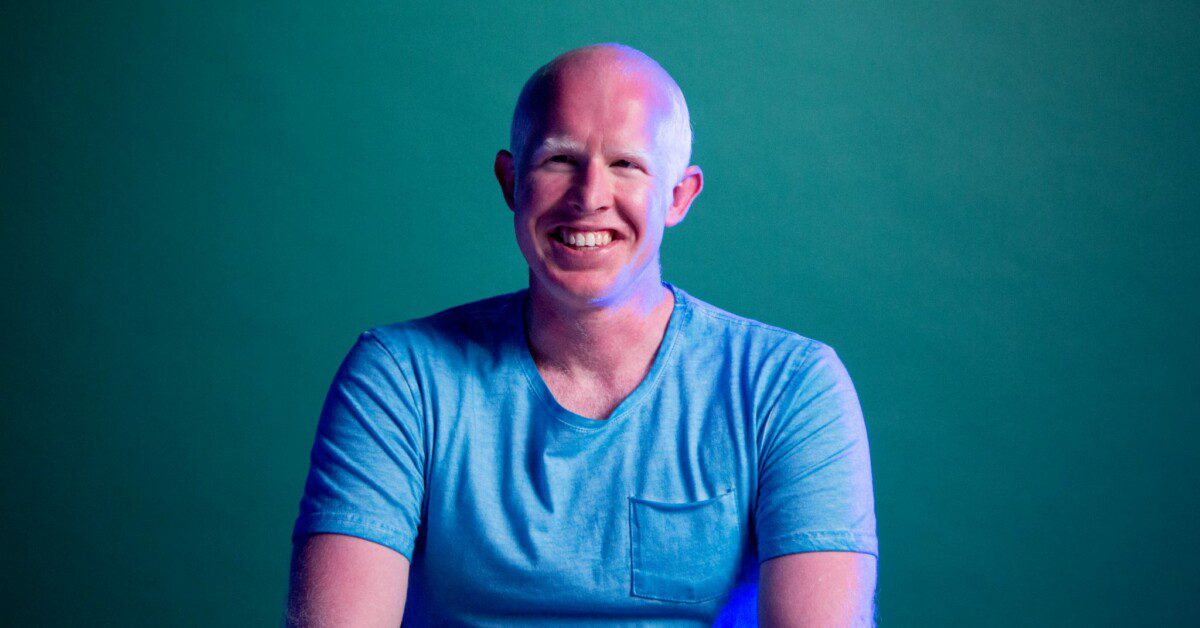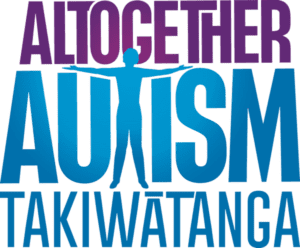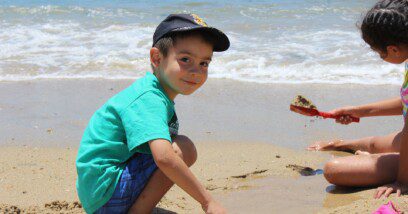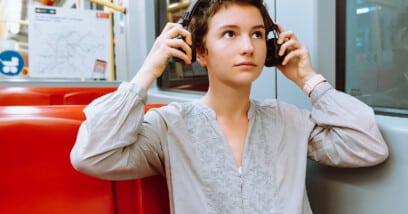
Daniel Holt has a different view of the world.
“I have a sensitivity to bright lights. Albinism quite often has what they call photophobia. So because of that, the bright light comes into your eyes a lot more so makes things seem more over-exposed.”
Photophobia is one of the ways Daniel is affected by albinism, a rare genetic condition that reduces the amount of melanin pigment found in the skin, hair and/or eyes. It commonly affects the development of the retina resulting in low vision and light sensitivity.
But it’s also given him a surprising edge in his job as a graphic designer where Daniel’s eye for colour accuracy is an asset.
“If you accept it for what it is, and it’s just a series of challenges that life gives you, then it’s not so much a disability it’s just a small little challenge”.
That’s not to say there haven’t been some frustrations along the way, like when most of Daniel’s teenage peers were getting their driver’s licence and able to enjoy all the added freedom that came with it.
But there have been opportunities too. Daniel has travelled overseas with the Blind Foundation and in 2012 he represented New Zealand in the pool at the London Paralympics.
“I think having, not even necessarily albinism, but a vision impairment or a disability may prevent doors from opening, but for every door that doesn’t open there’s probably two or three that do open.”
Watch Daniel talk about evil movie villains, suntanning and where he finds support in his Question Time video.
What is albinism?
Albinism is an inherited genetic condition which reduces the amount of melanin pigment found in the skin, hair and/or eyes.
The condition is rare, affecting just one in 17,000 New Zealanders.
The effects of albinism can vary significantly.
What are some of the challenges of living with albinism?
Reduced melanin affects the development of the retina. This can cause a number of vision impairments, included low vision, light sensitivity and nystagmus (rapid eye movement).
Many people with albinism who experience reduced pigment in the skin may also be more susceptible to sun damage.
Where can people find more information and support if they or a family member have albinism?
Albinism Trust in New Zealand is a voluntary not-for-profit organisation which is committed to emphasising positives and achievements by people with Albinism. They provide information and advocacy, and run a closed Facebook group so you can connect with other people and families affected by albinism.
Blind Foundation offers a range on resources, information, support and specialised equipment for New Zealanders who are blind or have low vision.
Additional information or resources can be found on international organisations’ websites:
National Organization for Albinism and Hypopigmentation
Visit the Mobility Centre Store for a range of equipment to help with low vision.





